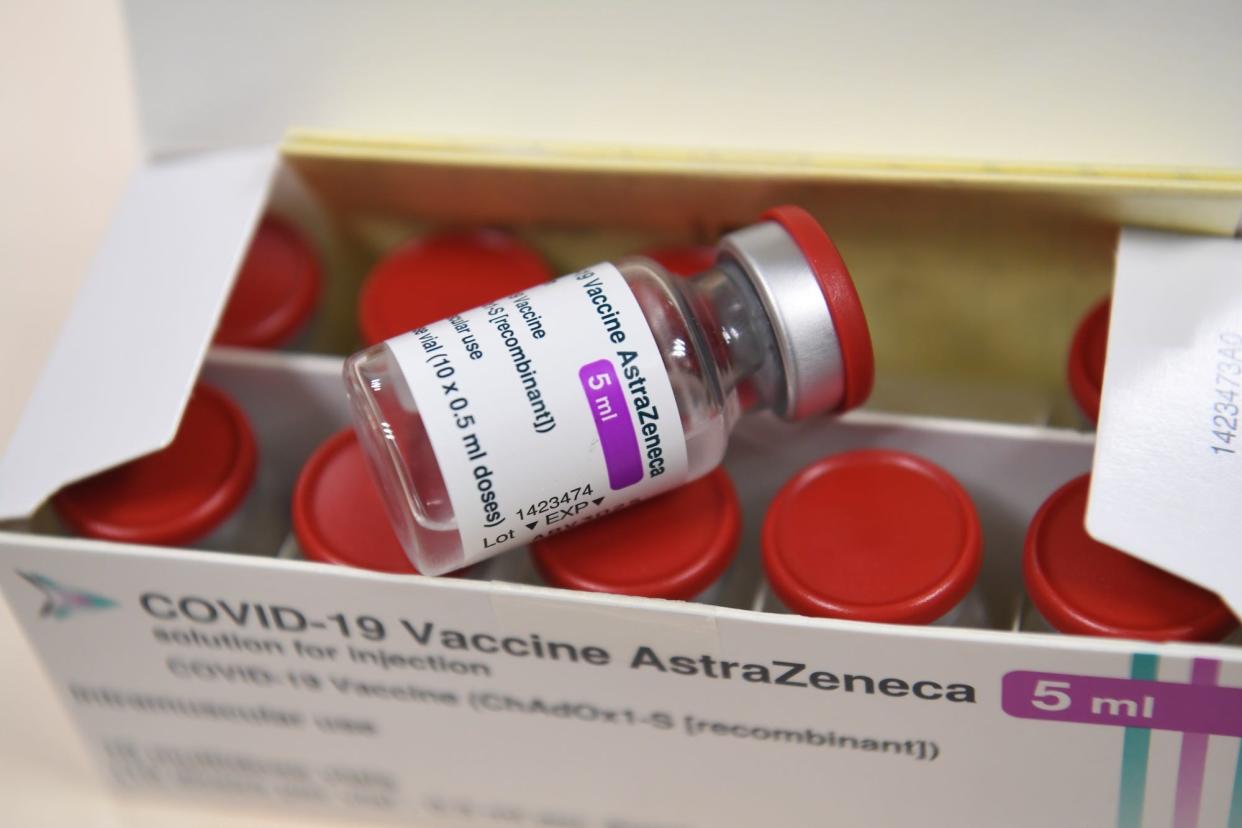Subtle signs you have a blood clot, and what to do about it

Blood clots have been reported in a small minority of people after receiving COVID-19 vaccines by AstraZeneca and Johnson & Johnson.
Clots can cause problems if they block an important vein or artery.
Symptoms of clots include shortness of breath, swelling, and severe and persistent headaches.
Blood clots have been reported in a small number of people after receiving COVID-19 vaccines from AstraZeneca and Johnson & Johnson.
The benefits of AstraZeneca's vaccine still outweigh the risks, the European Medicines Agency (EMA) said in a press release. Still, the agency's safety committee said it's important to know the signs of a possible clot.
A blood clot occurs when the blood thickens and forms a semi-solid mass. It can be a helpful response to stop bleeding in the case of injury, but these blockages can cause problems if they cut off blood flow to a vital area.
Watch: COVID-19 - EU regulator reviewing possible links between Johnson & Johnson jab and blood clots
Blood clots can cause blockages in the legs, abdomen, and lungs. Most of the blood clots associated with the AstraZeneca vaccine have occurred in veins in people's brains. These clots, known as cerebral venous sinus thrombosis (CVST), can lead to stroke, seizures, and death.
So far, most of the clots reported have occurred in women under 60 years of age within two weeks of vaccination. Since young people are more likely to experience this side effect, UK vaccine regulators recommend that people under 30 do not get the AstraZeneca shot unless they've already received their first dose.
Blood clot symptoms include shortness of breath and headaches
The EMA said patients who got the AstraZeneca vaccine should seek medical assistance immediately if they have the following symptoms:
shortness of breath
chest pain
swelling in your leg
persistent abdominal (belly) pain
neurological symptoms, including severe and persistent headaches or blurred vision
Some mild side effects, like pain at the injection site or other body aches, are common in the days post-vaccine. But if you experience severe or persistent symptoms around four to 20 days after vaccination, you should seek medical attention, according to the World Health Organization.
Blood clots are typically treated with anti-clotting medication. Complications can be avoided if the clot is caught early.
Read the original article on Business Insider
Watch: Do coronavirus vaccines affect fertility?

